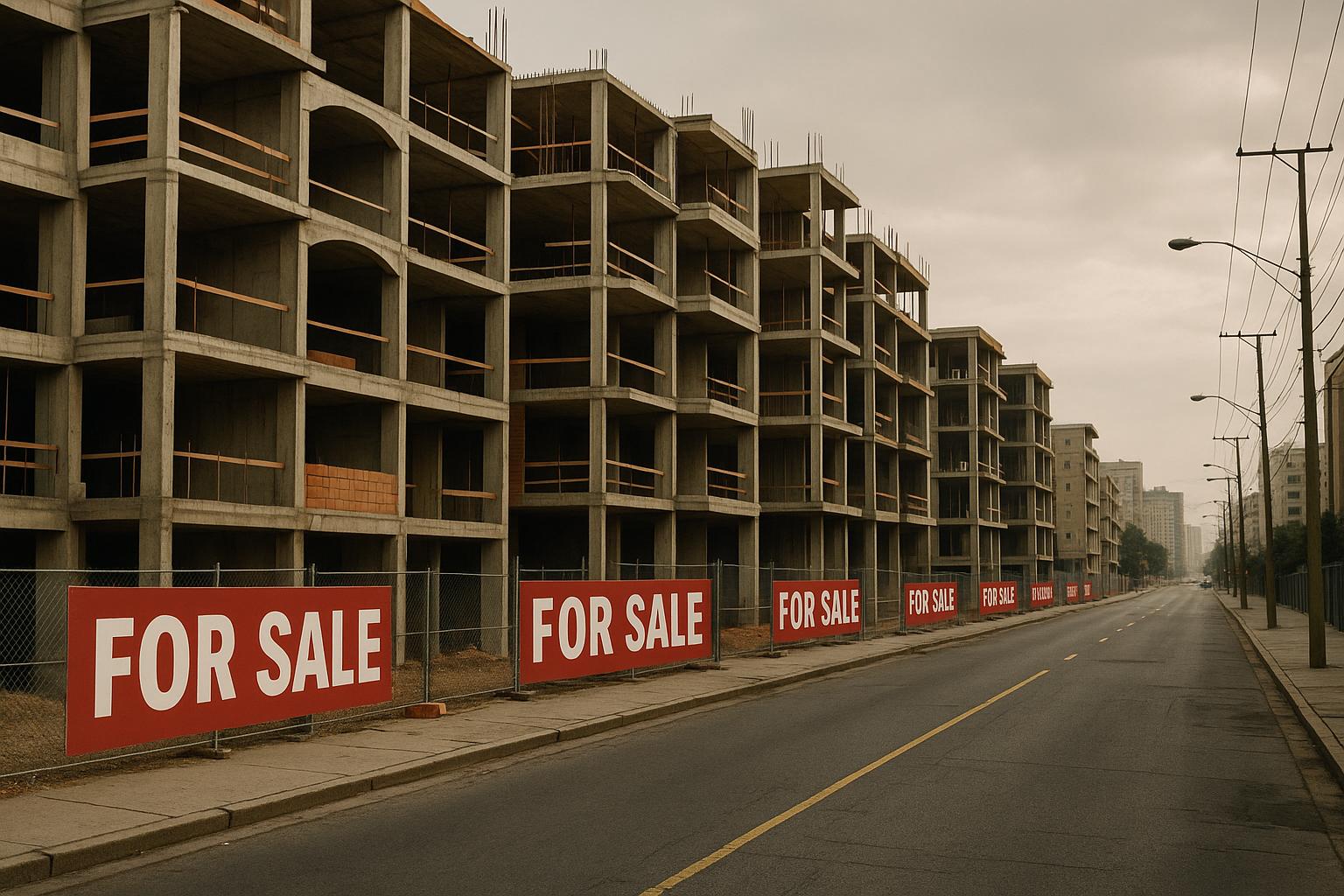The Mayor of London, Sadiq Khan, is preparing to significantly reduce the affordable housing requirements for developers in a bid to reinvigorate the capital’s stalled housebuilding sector. Proposals currently under discussion with Housing Secretary Steve Reed could cut the mandated affordable homes ratio from 35% to as low as 20%. This move aims to tackle the severe slowdown in housing construction across London, where only 3,248 private-sector homes were started in the first quarter of 2025 alone—a figure emblematic of a construction industry nearly at a standstill.
Khan has acknowledged the critical role of council housing, drawing on his personal experience growing up on a council estate and noting that his administration has overseen more council house construction than any time since the 1970s. However, he insists that reforms are necessary to "kickstart" housebuilding as London faces a "perfect storm" of challenges. These include soaring construction costs, high interest rates, and delays imposed by the Building Safety Regulator, all of which have throttled development.
Ministers have set an ambitious target for London to deliver 88,000 new homes annually up to 2029 as part of a UK-wide plan for 1.5 million new homes. Nevertheless, affordable housing starts in London fell to just 347 between April and June 2025, heightening concern among officials and prompting intense discussions about planning reform and financial incentives.
While the Mayor and government officials argue the need for pragmatic adjustments, critics warn that lowering affordable housing requirements will exacerbate London’s housing crisis. Green Party London Assembly member Zoë Garbett has condemned the proposals as favouring developers over struggling Londoners, highlighting the acute homelessness crisis with 90,000 children in temporary accommodation. She called on the Mayor to demand increased government funding for genuinely affordable social homes instead of relaxing targets that predominantly benefit private developers.
Similarly, Liberal Democrat Assembly member Hina Bokhari described the prospective cuts as "letting developers off the hook," warning it will worsen the emergency faced by families trapped in housing limbo. Conversely, Conservative Assembly member Lord Bailey supported the change, criticising Khan’s previous resistance and describing affordable housing targets as barriers to viable development amid soaring rents and mortgage costs.
Data from recent years reflects the struggle to meet affordable housing demands in London. In the 2024/25 financial year, fewer than 4,000 affordable homes were started—one of the lowest totals since 2013—with some boroughs, including Bexley and the City of London, starting none at all that year. This prompted a government revision of London’s affordable housing target downward to between 17,800 and 19,000 homes by March 2026 to allow more flexibility in funding stalled projects and incentivising developers to commence more schemes.
Despite the setbacks, the Mayor has also highlighted successes such as the Mayor’s Land Fund, which delivered over 8,000 new homes five years ahead of its 2030 target. This fund, launched in 2017, has leveraged public investment to unlock land for housing development, aiming to accelerate construction, particularly of social and affordable homes. Alongside this, the Government has allocated up to £11.7 billion over the next decade to support social and affordable housebuilding in London—a commitment Khan welcomed as a vital part of the ongoing effort to tackle the housing crisis.
A spokesperson for the Mayor’s office emphasised that the proposed reforms are part of a broader strategy to unblock stalled sites and speed up home delivery, including affordable homes. The Mayor insists that he remains committed to maximising affordable housing output, pointing to the record number of new homes completed before the pandemic and a programme that started more council homes than at any point since the 1970s.
However, a Whitehall source noted that no final decisions on the affordable housing target reduction have yet been made, though they acknowledged the dire state of housebuilding: the number of private homes under construction has fallen by a third since 2020, and affordable home starts remain critically low. They stressed the necessity of exploring all possible levers to resolve the housing emergency inherited from previous governments, including revising targets to get more homes built urgently.
The time-limited nature of the proposed affordable homes reduction—expected to last no more than two years—indicates a temporary measure to ease pressure on developers during an unprecedented construction downturn. Officials hope that with these changes, alongside continued government funding and new City Hall initiatives such as a Developer Investment Fund, London can regain momentum in delivering the housing stock the city desperately needs ahead of the next mayoral elections in 2028.
📌 Reference Map:
- Paragraph 1 – [1], [6]
- Paragraph 2 – [1], [6]
- Paragraph 3 – [1]
- Paragraph 4 – [1]
- Paragraph 5 – [1]
- Paragraph 6 – [1], [2], [5]
- Paragraph 7 – [3]
- Paragraph 8 – [1], [3]
- Paragraph 9 – [1], [6]
- Paragraph 10 – [1], [6], [2]
Source: Noah Wire Services
